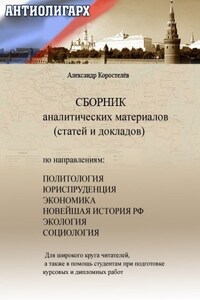We left the Marchioness de Castelmelhor and her daughter Eva prisoners of the Pincheyra.1
Thanks to the presence of the strangers in the camp, no one came to trouble the solitude of the captives.
Towards the evening they were warned by a somewhat brief message to make all their preparations, so as to be ready to commence a journey at the first signal.
The baggage of the two ladies had been, strange to say, scrupulously respected by the partisans; it was therefore somewhat considerable, and required four mules to carry it. They were promised that beasts of burden should be placed at their disposal.
The night was dark; the moon, hidden by thick clouds, fringed with greyish tints, gave no light; the sky was black; dull sounds were carried on the wind, and, repeated by the echoes, awakened the wild beasts in the depth of their secret lairs.
A funereal silence reigned over the camp, where all the fires were extinguished; the sentinels were mute, and their long motionless shadows stood out in relief from the darker tints of the surrounding hills. Towards four o'clock in the morning, when the horizon began to be tinged by greyish streaks of light, the noise of horses was heard.
The captives understood that the moment of their departure had come.
They had passed the night in prayer, without sleep having come for a single minute to close their eyelids.
At the first knock at their door they opened it.
A man entered; it was Don Pablo. A thick cloak enveloped him, and a broad-brimmed hat was pulled over his eyes.
"Are you ready?" he asked.
"We are," laconically answered the marchioness.
"Here are your horses, ladies," said the Pincheyra; "will you mount?"
"Are we to leave immediately?" ventured the marchioness.
"It must be so, Madame," answered Don Pablo, respectfully; "we are threatened with a storm, and any delay might cause us serious injury."
"Would it not be better to defer our journey for some hours?" pursued the marchioness.
"You do not know our Cordilleras, my lady," answered the Pincheyra, smiling. "A storm of two hours generally occasions such disasters that the means of communication are stopped for weeks; but for that matter I am completely at your orders."
The marchioness did not reply, and was at once escorted to the horses which awaited them.
The two ladies were placed about the centre of a troop formed by some twenty horsemen. By a remarkable refinement of courtesy on the part of uncultivated soldiers, Don Pablo had placed two horsemen to the right of the ladies, in order to preserve them from a fall during the darkness.
A group of a dozen horsemen, separated from the body of the troop, proceeded in advance as pioneers.
Notwithstanding the precarious situation in which she found herself, and the apprehensions by which her mind was harassed, the marchioness experienced a certain satisfaction, and an indefinable feeling of joy, to find herself at last out of the camp of the bandits.
Don Pablo, in order no doubt to avoid annoying the ladies, kept with the advanced guard, and, as soon as the day had become light enough to direct his course with safety, the two horsemen placed near the ladies were removed, so that the latter enjoyed a degree of liberty, and could talk to each other without fear of their words being heard.
"Mother," said Doña Eva, "does it not seem strange to you, that since our departure from Casa-Frama, Señor Sebastiao Vianna has not come near us."
"Yes; this conduct on the part of an intimate friend does appear to me singular; however, we must not be in a hurry. Perhaps Don Sebastiao has reasons for keeping aloof."
"Don Sebastiao ought to know how anxious we are to receive news of my father. I confess I am more concerned about it than I can explain."
"My dear, our parts are changed," said the marchioness; "it is you who fear, and I who hope."
"That's true, mother. I have misgivings about this journey. The warnings of Don Emile; his precipitate departure; what Don José told you yesterday, and even the courteous manner of Don Pablo, and the attentions which he heaps upon us, increase my suspicions. The more we advance in this direction, the more I am disquieted. Is it presentiment, or low spirits? I cannot tell you, mother."
"You are mad, Eva," answered the marchioness; "your presentiments arise from low spirits. What can we have further to fear. The men in whose hands we now are are completely masters of our fate."














